Site speed matters more than ever. It affects how long people stay on your site, how likely they are to convert, and even where you show up in Google.
One of the easiest ways to boost speed on a WordPress site is by using a caching plugin like LiteSpeed Cache or WP Rocket.
In this guide, we’ll break down how LiteSpeed Cache vs. WP Rocket works, what features they offer, and which is better depending on your setup. This comparison will help you pick the right tool for your site.
Table of Contents
What is a Caching Plugin?
Every time someone visits your website, their browser sends a request to your server. Without caching, the server has to build that page from scratch. It pulls the content, processes the code, and sends back the finished page. This happens every single time a page loads and it uses up server resources.
A caching plugin saves a ready-made version of your page. So instead of building the page every time, your site just hands out the saved version. This version is a static HTML file, which loads much faster.
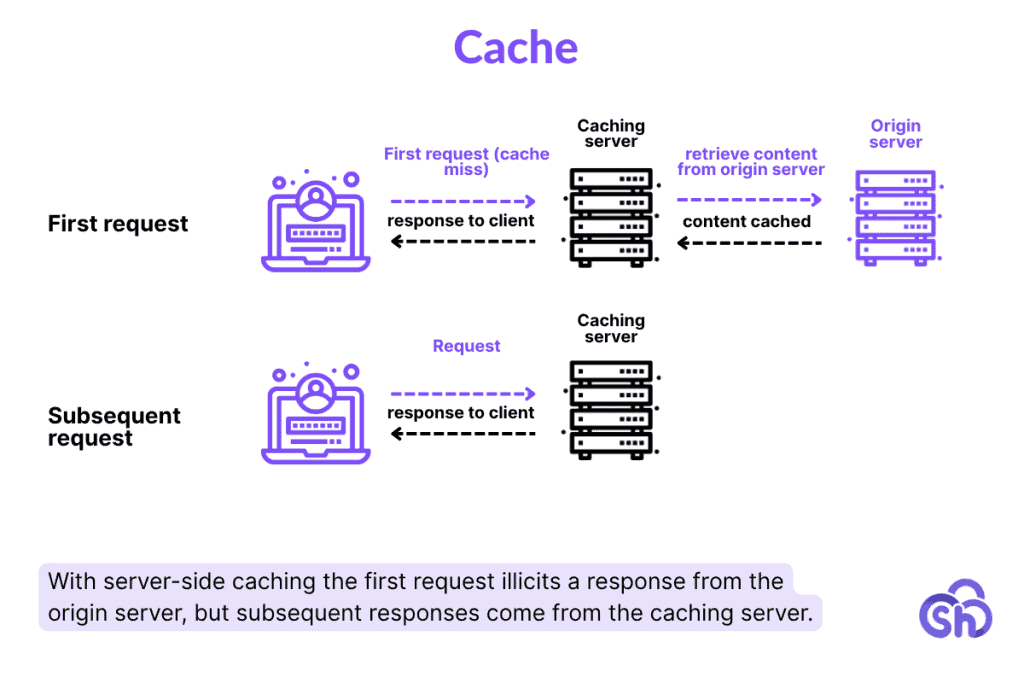
Here’s how it works:
- If the page hasn’t been saved yet, your server builds it and saves a copy.
- Next time someone visits, the saved page is already there. No extra work needed.
Now imagine your site gets 100 visitors in a row. Without caching, your server has to do the same work 100 times. That’s a lot of wasted effort and it can slow everything down. (And depending on your web host’s pricing, could cost you more money.)
Caching systems also check to make sure your saved pages are still fresh. If you update your content, the plugin knows to rebuild the page and save a new copy. This keeps your site fast and up to date. Some plugins can even preload your pages so even the first visitor doesn’t have to wait.
Why do fast websites matter? For one, they make for a better user experience. When a site loads quickly, people are more likely to stay, click around, and come back later. Slow sites frustrate users and often lead to higher bounce rates.
Google sees this as a bad sign, so it uses speed as a ranking factor. Faster sites have a better chance of showing up higher in search results.
What is LiteSpeed Cache?
LiteSpeed Cache (also called LSCache) is a free caching plugin made for sites hosted on LiteSpeed servers. It connects with the server itself to give you better speed and performance.
It can also do more than just caching. LiteSpeed Cache helps you optimize images, clean your database, and connect to a CDN. If you’re hosting with SupportHost LiteSpeed, LiteSpeed Cache works great out of the box.
LiteSpeed Cache isn’t just for WordPress sites. You can also get modules and plugins for Magento, Joomla, PrestaShop, OpenCart, and Drupal.
Learn more about Litespeed and LSCache in our full guide, including how it’s used and what kind of performance you can expect from it.
What is WP Rocket?
WP Rocket is a premium caching plugin for WordPress. You don’t need a specific server to use it. It works with almost any hosting setup.
WP Rocket is known for being beginner-friendly. It’s simple to install and works well without much setup. It also includes helpful tools like lazy loading, file optimization, and database cleanup.
WP Rocket is a premium plugin. There is no free version or trial to test before purchasing. That said, many people like it for its performance boost and ease of use.
LiteSpeed Cache vs. WP Rocket: Feature Comparison
Both plugins are packed with performance tools, but they don’t offer the exact same features. This table gives you a full breakdown of Litespeed Cache vs. WP Rocket so you can compare them side by side and choose the one that fits your needs best.
Feature | LiteSpeed Cache | WP Rocket |
|---|---|---|
Price | Free | Paid (starting at $59/year) |
Works on all hosts? | No (LiteSpeed servers only) | |
Page caching | (server-level) | (PHP-level) |
Cache for mobile devices | ||
Cache for logged-in users | ||
Separate cache by device/user/cookie | ||
Edge Side Includes (ESI) | ||
Cache preloading | (with crawler) | |
Smart cache purging | (tag-based) | |
Ecommerce page handling | ESI for private blocks | Auto-excludes sensitive pages |
Image optimization | (lossless, WebP, etc.) | (requires third-party tool) |
Lazy loading (images/iframes) | ||
Critical CSS generation | (via QUIC.cloud) | |
Minify CSS, JS, HTML | ||
Combine CSS/JS files | ||
Load CSS/JS asynchronously | ||
Delay JavaScript execution | ||
Database optimization | ||
CDN integration | ||
DNS prefetching | ||
Host Google Fonts locally | ||
Heartbeat control | ||
Cloudflare integration | ||
Multisite support | ||
Plugin compatibility warnings | ||
Configuration presets | (Basic, Advanced, etc.) | (uses defaults) |
Supports HTTP/3 | (via server) | |
QUIC.cloud integration | (native) | |
Documentation | Moderate, but growing | Extensive |
Support | Free forum support | Premium support |
LiteSpeed Cache vs. WP Rocket: Ease of Use
If you’re not a tech expert, caching can feel a bit overwhelming. That’s why ease of use is so important. You want something that works well without needing hours of setup or confusing settings.
WP Rocket is known for being beginner-friendly. Once you install and activate it, it automatically applies smart default settings, so you don’t have to do anything else. It even starts building your cache in the background.
If you want to dig deeper, you’ll find extra options for optimizing files, images, and your database. But you don’t have to touch those if you don’t want to.
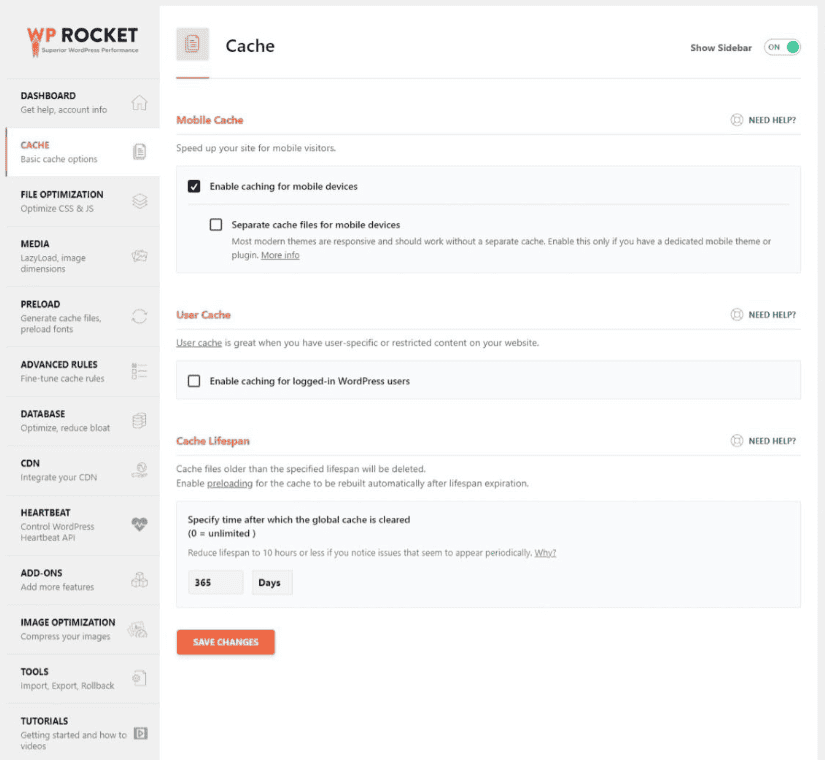
LiteSpeed Cache gives you more options, but that can make it harder to set up. After installing the plugin, you have to go into the settings and pick a preset.
There are several to choose from, like “Basic” and “Advanced,” but you’ll need to decide what’s right for your site. This means you need some understanding of what each feature does.
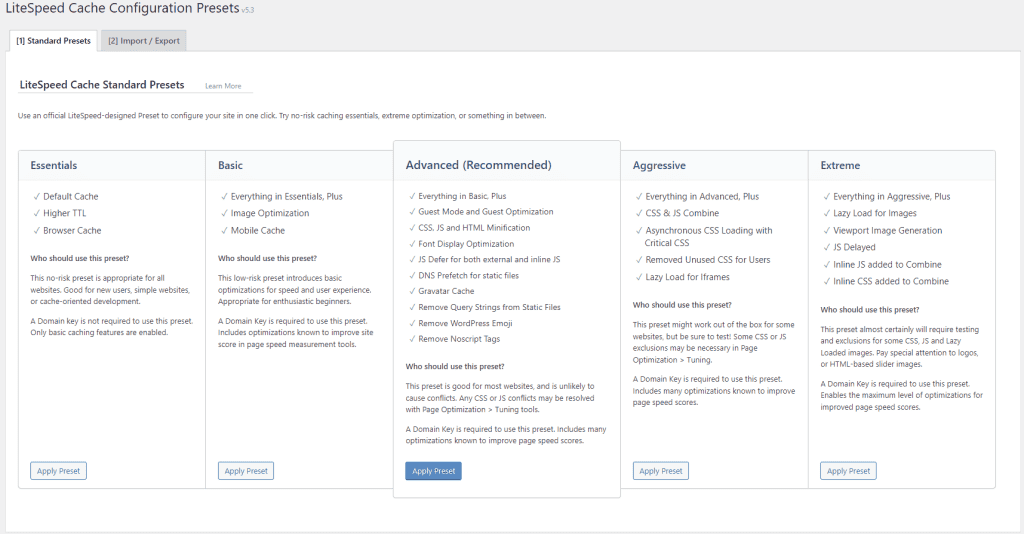
The plugin doesn’t guide you much, and the settings are spread out across multiple screens. However, we think these are minor drawbacks in light of LSCache’s other advantages (which we’ll explain next).
LiteSpeed Cache vs. WP Rocket: Performance
Both plugins make your site faster, but they go about it in different ways.
WP Rocket creates cached versions of your pages and stores them in your WordPress file system. It also preloads the cache in the background, so visitors don’t have to wait for pages to generate.
In Google’s PageSpeed Insights tests, WP Rocket generally scores in the 98% to 99% range and loads in under half a second. That’s more than enough to speed up most small to medium WordPress sites.
LiteSpeed Cache works a little differently. It works directly with the LiteSpeed server. Because it’s built into the server, LSCache can deliver cached pages even faster, especially under heavy traffic.
In Google’s PageSpeed Insights tests, LSCache typically socres about 90%, but usually loads faster than WP Rocket sites. In other words, it’s doing more with less.
LiteSpeed Cache also supports advanced features like ESI (Edge Side Includes) for ecommerce, and “smart purging” to keep cache fresh without overloading your server.
What this means in regards to Litespeed Cache vs. WP Rocket: WP Rocket edges out LSCache on Core Web Vitals, which are important for SEO. But LSCache makes up for it with faster load times and server-level speed boosts.
LiteSpeed Cache vs. WP Rocket: Compatibility
Before you choose a caching plugin, it’s important to know if it works with your hosting setup. Not all plugins are compatible with every server.
WP Rocket works on almost any WordPress website. It doesn’t matter if your server uses Apache, Nginx, or LiteSpeed without any extra setup. That’s one of the reasons it’s so popular.
LiteSpeed Cache, on the other hand, is made specifically for servers running LiteSpeed. This may be a limitation, but it’s also the reason it’s so fast. It connects directly with the LiteSpeed server to deliver your pages quickly and use fewer resources.
But if your host doesn’t use LiteSpeed, LSCache won’t work the way it’s supposed to. You’ll miss out on most of its best features.
Fortunatley, SupportHost uses LiteSpeed on many hosting plans, which means LSCache is fully supported and ready to go.
LiteSpeed Cache vs. WP Rocket: Support and Documentation
When something goes wrong or you’re just not sure how a setting works, good support can save you hours of frustration. So let’s look at what kind of help you can expect from each plugin.
WP Rocket is a premium plugin, and part of what you pay for is fast, priority support. If you run into an issue, you can open a support ticket and get a helpful response from their team.
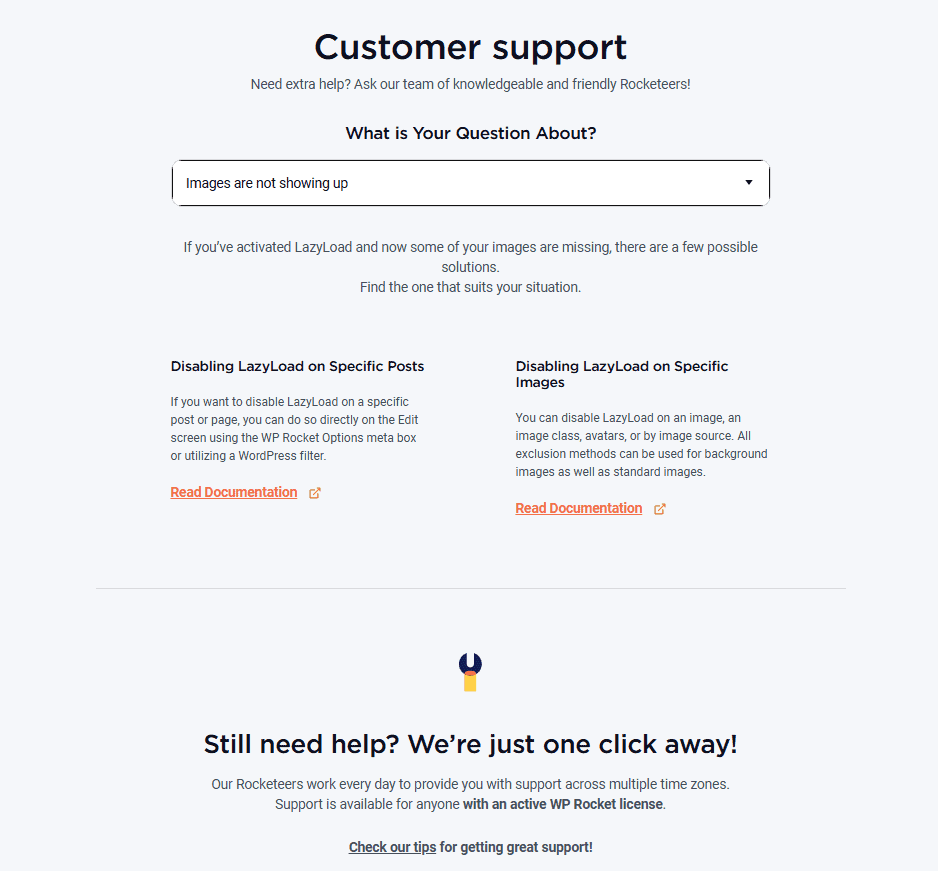
They also offer a large knowledge base with guides, videos, and tips for common problems. It’s built with beginners in mind, and most of it is easy to follow.
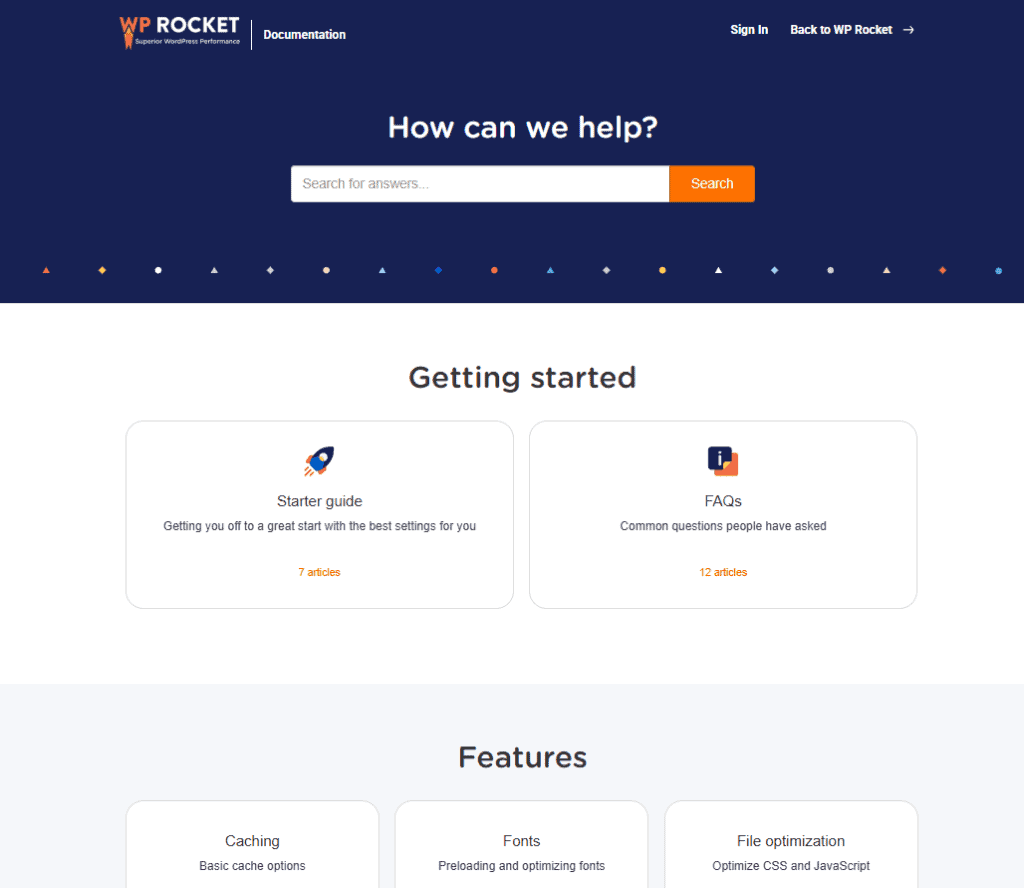
LiteSpeed Cache is completely free, but still offers great support. The LiteSpeed support page includes documentations, wikis, a blog, forum, and Facebook and Slack groups.
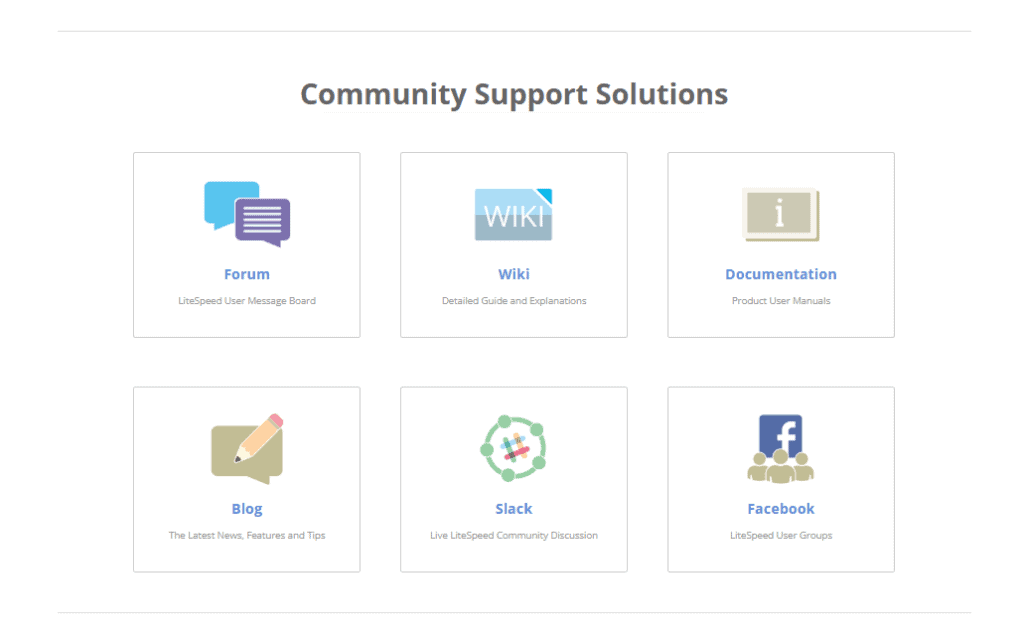
You can also submit questions via ticket or email.
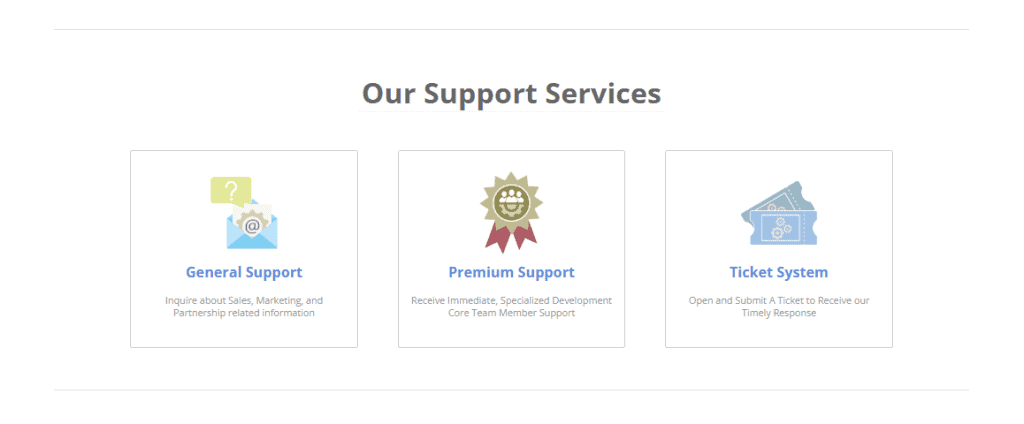
LiteSpeed Cache vs. WP Rocket: Pricing
This one’s pretty straightforward. WP Rocket is a paid plugin. LiteSpeed Cache is free.
WP Rocket starts at $59 per year for one site. If you have more than one, you’ll need to upgrade to the Plus plan ($119/year for 3 sites) or the Infinite plan ($299/year for unlimited sites).
All plans include updates and support for one year. There’s no free version, but they do offer a 14-day money-back guarantee.
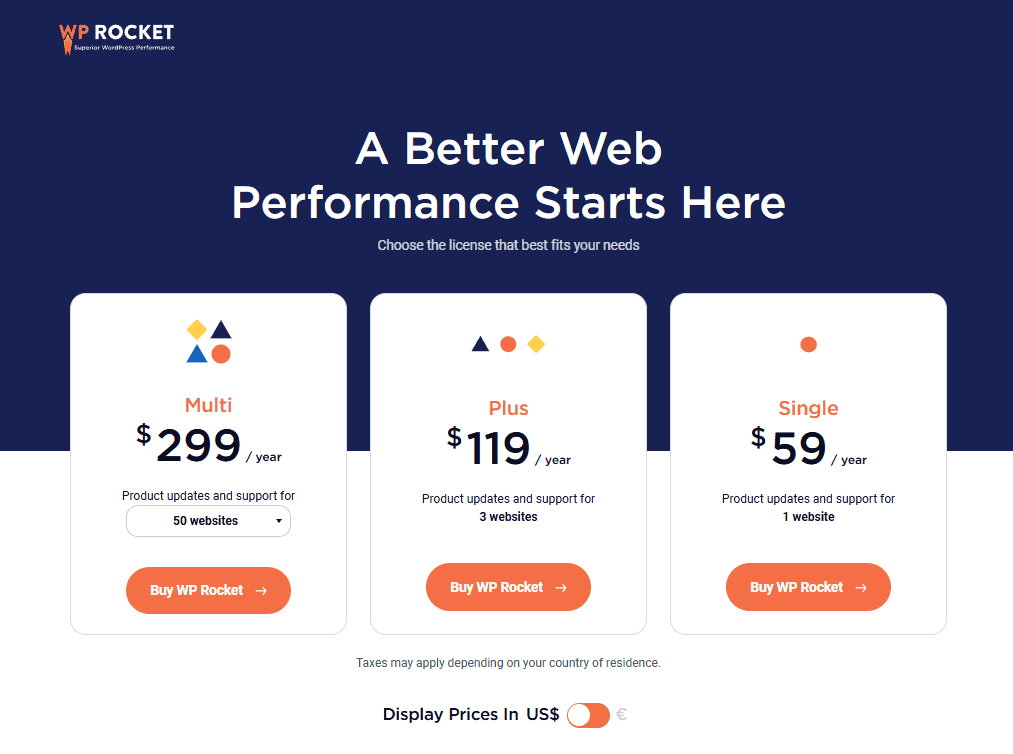
LiteSpeed Cache doesn’t cost anything to use. All its features are included for free as long as your site runs on a LiteSpeed server. You don’t need to upgrade or buy anything to unlock full caching features.
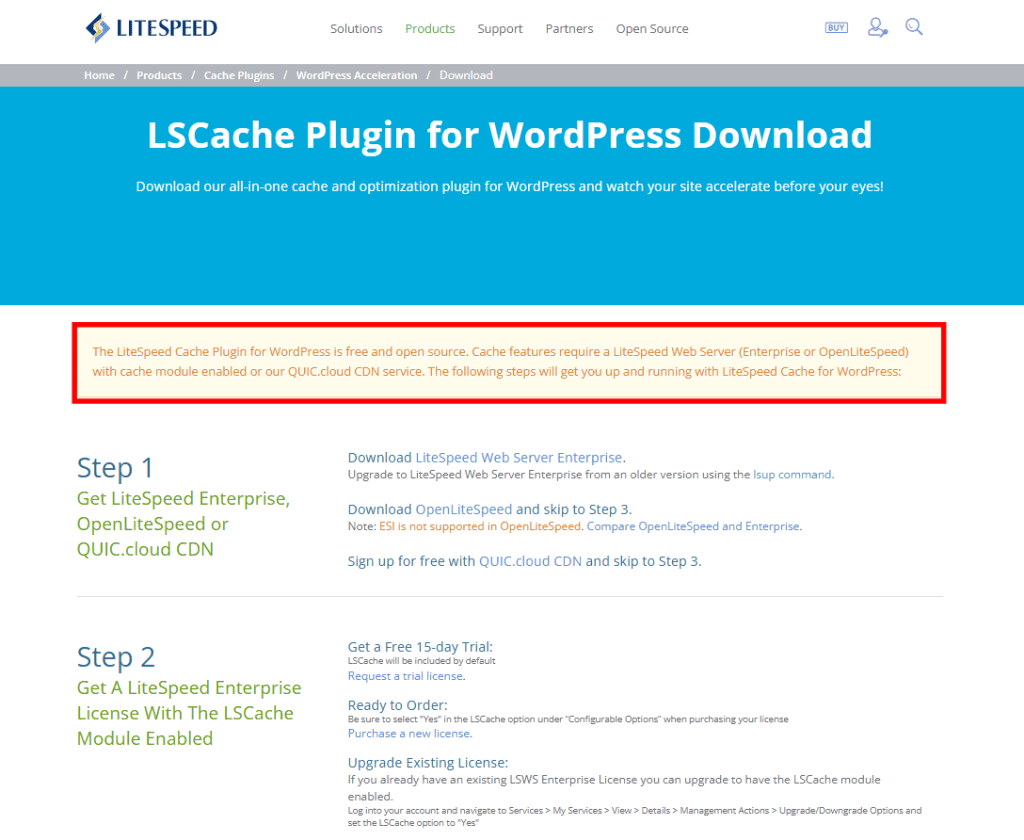
Some extra tools (like image optimization through QUIC.cloud) have free usage limits, but you can upgrade only if you need to.
FAQs About LiteSpeed Cache and WP Rocket
Which plugin is better for beginners who don’t know much about caching?
WP Rocket is better for beginners because it works right away with almost no setup. It applies smart default settings, so you don’t need to tweak anything to see results.
Do LiteSpeed Cache and WP Rocket optimize images?
WP Rocket does not include built-in image optimization, but it supports lazy loading. LiteSpeed Cache does both: it can optimize images, convert them to WebP, and handle lazy loading.
Can I use LiteSpeed Cache on any hosting provider?
No. LiteSpeed Cache only works fully if your hosting provider uses LiteSpeed servers.
Is WP Rocket worth the cost compared to free LiteSpeed Cache?
WP Rocket is worth it if you want a simple setup and your host doesn’t use LiteSpeed. But if you’re already on a LiteSpeed server, LSCache gives you great performance for free.
Which plugin performs better for Core Web Vitals and SEO?
In our tests, WP Rocket and LiteSpeed Cache achieve similar Core Web Vitals scores. But LiteSpeed Cache had faster load times, especially under heavy traffic.
Do I need both a caching plugin and a CDN?
A caching plugin speeds up your site for visitors by storing pages locally. A content delivery network (CDN) makes your site load faster for people around the world. Using both gives you the best performance.
Final Thoughts LiteSpeed Cache vs. WP Rocket
Both LiteSpeed Cache and WP Rocket are excellent caching plugins, but the right choice depends on your hosting and your comfort level with setup.
If your website is hosted on a LiteSpeed server (like with SupportHost), LiteSpeed Cache is the clear winner. It’s free, fast, and deeply integrated with the server. You get powerful features like server-level caching, image optimization, and advanced cache controls without paying anything. It takes a little more effort to set up, but the performance is worth it.
If your host doesn’t use LiteSpeed or you want something that just works right away, WP Rocket is a strong pick. It’s easy to install, beginner-friendly, and comes with excellent support. You’ll need to pay for it, but for many users, the time saved is worth the cost.
Either way, both plugins will make your WordPress site faster.
No matter which plugin you choose, adding caching to your site is a big step toward faster load times, better SEO, and happier visitors. And if you’re already using SupportHost’s WordPress hosting, you already have everything you need to get started.


Leave a Reply